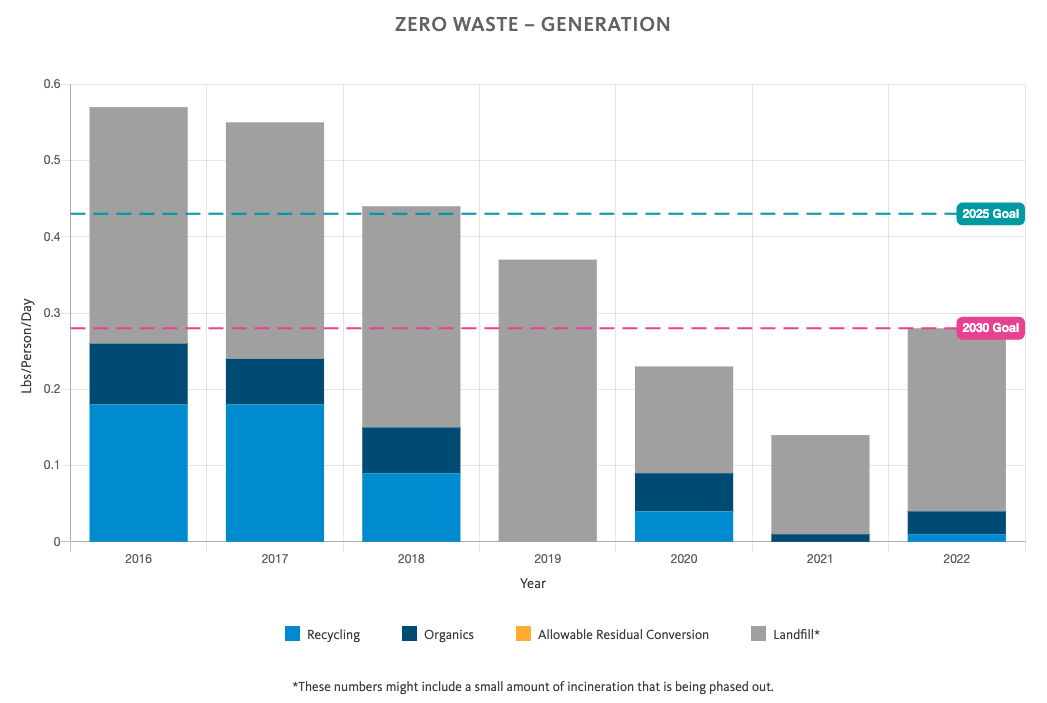Overview
UC Merced is making strides toward achieving net zero waste on campus through comprehensive recycling, composting, and waste reduction programs. The university promotes recycling, diverts organic waste for composting, reduces single-use plastics, and fosters collaboration among departments and student groups to continually improve waste management practices. Their collective efforts drive the campus closer to the goal of producing minimal waste, setting a notable standard for sustainable practices in higher education.
Progress and Statistics
Overall municipal solid waste (excluding construction and demolition) increased 82% over last year, most likely due to the return to campus and events. However, UC Merced has been able to reduce waste generation to the 2030 goal of less than 0.3 lbs of waste per person per day in 2022.

Slim Jims
At UC Merced, the implementation of Slim Jims—specialized waste bins—plays a crucial role in sorting waste materials efficiently across the campus. These bins are strategically designed with compartments to segregate landfill, recycling, and compostable items. This system simplifies and encourages proper waste disposal practices, enabling the campus community to easily and effectively separate their waste into the appropriate categories. The utilization of Slim Jims not only streamlines waste sorting but also contributes significantly to UC Merced's overall waste management strategy, promoting sustainability and environmental consciousness throughout the campus.
Recycling Center

At UC Merced, students play a pivotal role in the waste management process by actively sorting and redirecting materials collected from the Slim Jims across the campus. These dedicated students work at the recycling center, meticulously sorting the waste into distinct categories such as recyclables, compostable items, and landfill waste. Their efforts ensure that materials are correctly diverted to their respective destinations, facilitating efficient recycling and composting processes. This student-led initiative not only reinforces a culture of environmental responsibility but also significantly contributes to UC Merced's commitment to sustainability and waste reduction.



